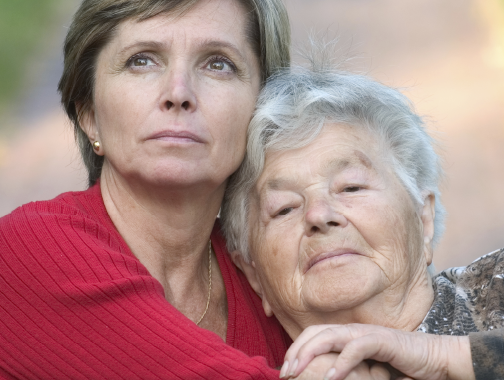It’s a Worrisome Time for Caregiving

Published in the June 2020 edition of RI Senior Digest.
By Kathleen Connell, AARP Rhode Island
It goes without saying the everyone has been through a lot since the coronavirus entered the picture and totally consumed our lives.
We have suffered greatly, sacrificed bravely and witnessed unimagined changes in the way we live – not to mention mourning the loss of many close to us. As we reach June, we’re all coping with day to day adjustments and an uncertain future.
Especially hard hit are caregivers, whose worries are like sand through the hourglass.
I would like to share some helpful wisdom from Barry J. Jacobs, a clinical psychologist, family therapist and healthcare consultant, as well as the co-author of the book AARP Meditations for Caregivers.
He wrote something recently that caught my eye. In a recent therapy session, a 70-year-old woman caring for her husband in a nursing home lamented the fact she worries about him constantly.
This was his reply: "As long as we're in this pandemic, I don't think you are going to be able to stop worrying about him.”
But he then turned to how he could help her not worry less but worry more productively.
“Caregivers,” Jacobs says, “have plenty to be fearful about nowadays, including contracting the coronavirus, feeling isolated at home, getting food and medications, and coping with financial strain. It would be surprising if a caregiver wasn't worrying during this time of crisis.
“But when the tendency to stew escalates, worries dominate caregivers’ thoughts, disturb their sleep and detract from their ability to enjoy life, we call it something else: anxiety. Anxiety isn't normal; it's a problem that clouds our thinking and diminishes our abilities to perform at our peak. In its more severe forms, anxiety is debilitating and requires treatments such as medication and psychotherapy.”
So the big question is how can family caregivers use worry productively. One has no shelter from the pandemic worries, but how is it possible to avoid crossing the line into anxiety?
Here are three of Jacobs’ ideas I am happy to present.
Worry, but don't ruminate. Thinking about worrisome challenges is not a problem; thinking about them constantly is. Ruminating cows chew their cud for hours; likewise, ruminating caregivers chew on the same worrying thoughts again and again, without getting any closer to a solution.
A somewhat paradoxical psychological technique is to encourage caregivers to worry more — but only at certain times. So rather than trying to distract themselves from their worries by forcing their mind to focus on other things, caregivers should schedule at least an hour each day to fret as much as they possibly can. During that time they should keep a journal about whatever is troubling them. But, here's the key: At the end of the hour, they need to put the notebook away or close the computer file and turn their attention to more immediate concerns. “Brain-dumping” worries allows caregivers to circumscribe them to those “worry hours” and gain a greater sense of control over their thoughts in general.
Worry, but don't “catastrophize.” It is realistic to worry about the coronavirus. It may not, however, be realistic for a caregiver to worry that her entire family is in imminent danger of being wiped out by COVID-19 because she forgot to wear a mask when she went to the pharmacy three weeks ago. To tamp down this mindset, caregivers need to reflect on their worries and ask themselves two questions: How realistic is this worry, really? How helpful is it to dwell on worrying about this low-probability possibility? If a worrying thought is neither realistic nor helpful, then it should be given less attention.
Harness worry's energy. Worrying makes us more alert and ready for action. This increased energy can be used for effective problem solving. During the “worry hour,” caregivers can not only dump their worries and then assess them for realism and helpfulness but also ask themselves another important question: Which of my worries are and aren't within my power to solve? Those that aren't should be assigned for more venting. But those that are should prompt caregivers to begin generating ideas in their journal about how these worries can be addressed. What steps can a caregiver take to make a difference in reducing these concerns? What does she need in order to take those steps? This caregiver can contact the nursing home and ask what measures the staff are taking to combat the coronavirus. She could also ask what the plan is for the nursing home to communicate important information to both residents and families on a regular basis.
I hope this is helpful if you are caregiver. If you are in the care of a family member(s) or others, please share. They surely are worried. But we can face worries together, head on.


